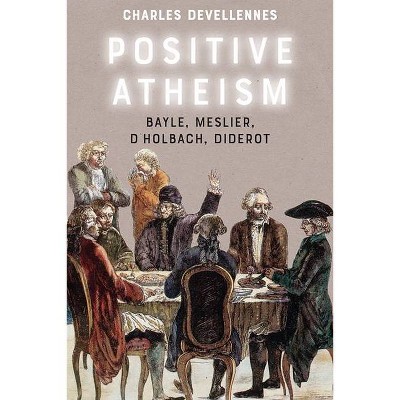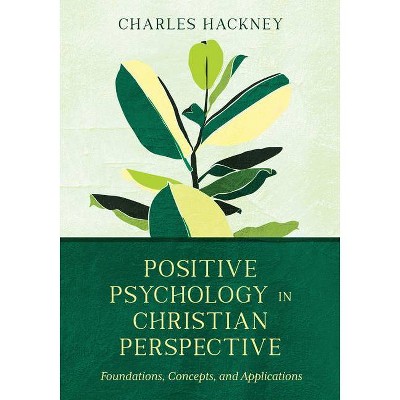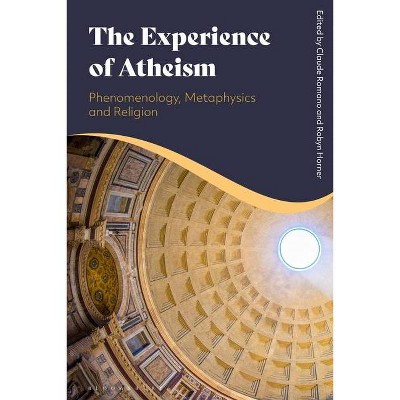Positive Atheism - by Charles Devellennes (Hardcover)

Similar Products
Products of same category from the store
AllProduct info
<p/><br></br><p><b> About the Book </b></p></br></br>Charles Devellennes looks at the the religious, social and political thought of the first four thinkers of the French Enlightenment: Pierre Bayle, Jean Meslier, Paul-Henri Thiry d'Holbach and Denis Diderot to explicitly argue for atheism as a positive philosophy.<p/><br></br><p><b> Book Synopsis </b></p></br></br>Charles Devellennes looks at the the religious, social and political thought of the first four thinkers of the French Enlightenment: Pierre Bayle, Jean Meslier, Paul-Henri Thiry d'Holbach and Denis Diderot to explicitly argue for atheism as a positive philosophy. He shows how atheism evolved considerably over the century that spans the works of these four authors: from the possibility of the virtuous atheist in the late 17th century, to a deeply rooted materialist philosophy with radical social and political consequences by the eve of the French revolution. The metamorphosis of atheism from a purely negative phenomenon to one that became self-aware had profound consequences for establishing an ethics without God and the rise of republicanism as a political philosophy.<p/><br></br><p><b> From the Back Cover </b></p></br></br>'This study represents a surprisingly yet unwritten history of atheism focusing on the point of view of atheists themselves - a fresh and much needed take that moves beyond narratives written by adversaries of atheism. By examining four key thinkers of the French Enlightenment, Devellenes' outstanding book offers a nuanced and contextualised view of atheism that is carefully attuned to politics.' Rosario López, Assistant Professor, University of Málaga An examination of the positive nature of atheism as a political philosophy Charles Devellennes looks at the first four thinkers of the French Enlightenment to explicitly argue for atheism as a positive philosophy. He explores the religious, social and political thought of Pierre Bayle, Jean Meslier, Paul-Henri Thiry d'Holbach and Denis Diderot and in doing so adds new dimensions to our understanding of their contribution to the history of ideas. Atheism is seen to have evolved considerably over the century that spans the works of these four authors. Starting with the possibility of the virtuous atheist in the late seventeenth century, atheism metamorphoses to encompass a deeply rooted materialist philosophy with radical social and political consequences by the eve of the French revolution. The metamorphosis of atheism from a purely negative phenomenon to one that became self-aware is shown to have profound consequences for the establishment of an ethics without God, as well as for the rise of republicanism as a political philosophy. Culminating in the work of Diderot, atheism became increasingly critical of its own position, and by the late eighteenth century had already proposed to move past its positive formulation into a form of metatheism. Diderot, who sees atheism as both a critical tool to assess religious, social and political institutions and as an object of his own critique, foreshadows the rise of a post-Enlightenment conception of atheism. Charles Devellennes is a Senior Lecturer in Political and Social Thought at the University of Kent Cover image: Enlightenment Thinkers (c) akg-images / Science Source Cover design: [EUP logo] edinburghuniversitypress.com ISBN Barcode<p/><br></br><p><b> About the Author </b></p></br></br><p>Charles Devellennes is Senior Lecturer in Political and Social Thought at the University of Kent. He has written extensively on the history of political thought, including on d'Holbach and Meslier, as well as on atheism both in its historical context and contemporary expressions. His recent works include critiques of the new materialism, as well as a rethinking of the social contract for the Gilets Jaunes movement in France.<p>
Price History
Price Archive shows prices from various stores, lets you see history and find the cheapest. There is no actual sale on the website. For all support, inquiry and suggestion messagescommunication@pricearchive.us




















